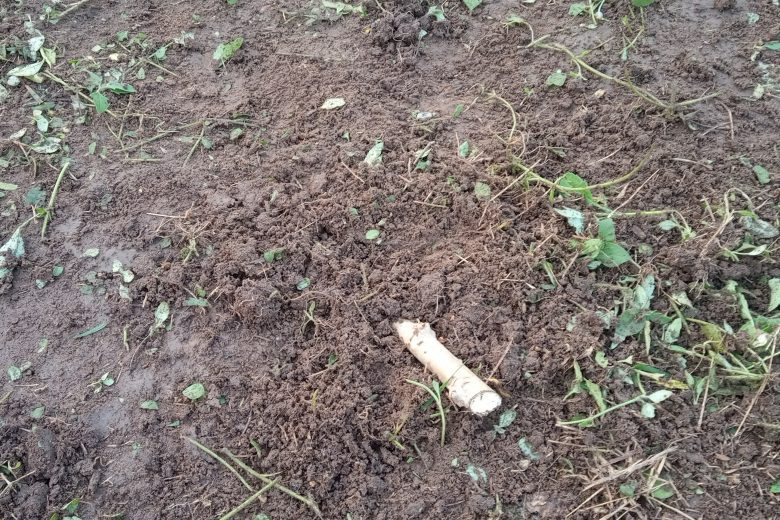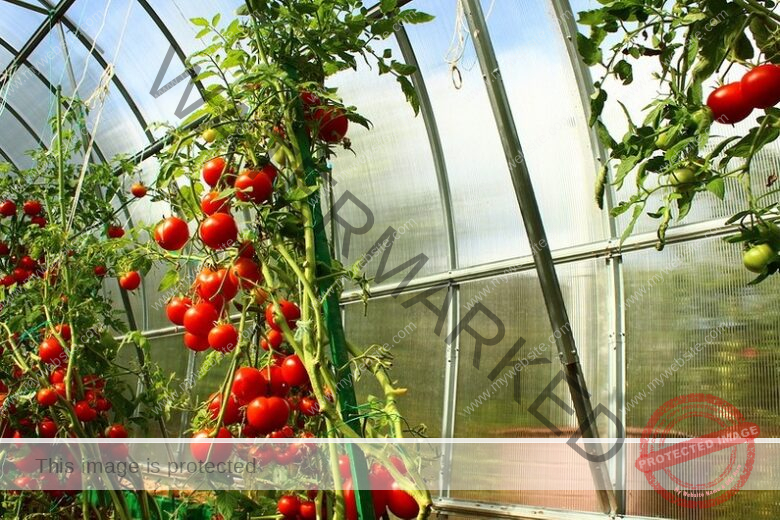Farming In Tunisia– Agriculture is a thriving venture in Tunisia despite the country being located in a desert region. It will interest you to know that Tunisia is one of the top agricultural practicing countries in Africa.
Agriculture has been a long-time practice and it remains so to date ranking as the third-largest manufacturing sector in the country. In recent years farming in Tunisia has undergone a consistent and remarkable improvement.
It is interesting that despite the mass arid land in the north African country, they can find a way to carry out lush agricultural activities by applying modern farming techniques and methods to improve farming in the country.
To venture into farming in Tunisia, you have to identify your farming niche, acquire the necessary skill, get farmland, land preparation, planting, mulching, irrigation, fertilizer application, and harvest.
How to Start Farming in Tunisia Step By Step Guide
Now that you are aware that farming is possible in Tunisia, to get started, you have to follow the guide below.
Step 1: Identify your Farming Niche
Farming is a large field that has been divided into two major types. Crop farming and livestock farming. If you have enough resources, you can carry out both, but it is best to practice one and major in it.
Read Also: How To Start Farming In Mauritania [Beginners Guide]
Step 2: Acquire Necessary Skill
Having identified your farming niche, you should gather sufficient knowledge regarding your selected farming area.
You can meet with experienced farmers to get learn and acquire the experience and skills needed in your area of specialization.
Another alternative means to source information is the internet especially sites such as YouTube and dedicated agriculture websites.
Step 3: Get a Farmland
We are getting closer to the farming activities proper. You have to get farmland where you can carry out your farming activities be it animal farming or soil farming. The land can be bought or rented depending on your finance.
Read Also: How To Start Farming In Lesotho [Beginners Guide]
Note that there are criteria to look out for before you finally select farmland. These are quality of soil properties, accessibility to water, nearness to major roads, proximity to the market, and weather condition.
Considering the above-stated factors will influence your decision regarding farmland acquisition.
Step 4: Land Preparation
This is the stage where you have to remove every unwanted plant on the farmland to make it arable. The activities you need to perform to ensure the farmland is farmable, have to plow the farmland, level the land, and spray the farmland.
These can be done manually using simple farm tools such as cutlass, rakes, and other simple farm clearing tools. On the other hand, you can make use of mechanized equipment like bulldozers and other similar machines to carry out the same tasks.
Step 5: Farm Beds Preparation
The next endeavor is to prepare farm beds where the seeds will be planted. The farm beds prepared depends on the type of crop you intend to plant because some crops like tree plants do not require farm beds, rather you need to prepare planting holes.
Read Also: How To Grow Cucumber In Pots & Container
Step 6: Planting
This is the time to plant your acquired seedlings on the prepared farm beds where the germination process will take place. You can either plant directly the seeds on the farm bed or transfer the already sprouted plants to the farm bed.
Step 7: Mulching
Typically, due to the aridity, excess sunlight, and shortage of rainfall, plants tend not to grow as they ought to. That is why you need to mulch the farmland to protect the soil from losing moisture and also protect the plants from excess sunlight that can scorch the leaves leading to the crops’ death.
Mulching can be done with dead plants such as dried grass, weeds, and any other unwanted plants that are to be placed on the soil or to create a shade over the farmland.
Step 8: Irrigation
Irrigation is compulsory in modern farming. This practice allows crop farming to take place in season and out of season. That is why during the farm bed preparation stage, you have to make irrigation channels where water can flow throughout the farm.
Step 9: Weeding and Pest Control
You have to remove every unwanted plant growing alongside the dibble plants. The weeds can be uprooted by hand or using simple
Step 10: Fertilizer Application
Fertilizer application is an important farm practice that is to be carried out at intervals throughout the crop germination stage. Different types of fertilizers can be applied on the farm at different percentages.
Read Also: How To Grow Cucumber In Pots & Container
Stage 11: Harvest
This is the stage where you collect all the mature crops by cutting or plucking from the plants. The ripped seeds are then sorted, cleaned, and further processed to prepare them for marketing.
What do Farmers Grow in Tunisia?
Farmers in Tunisia grow a variety of crops. However, most farmers in the country are known to grow cereals, wheat, almond, pistachio, date, apple and pear trees, and grapevines.
How can I Start my Farming Business?
The farming business is a lucrative enterprise and serves as one of the major economic activities in most countries around the world.
To start a farming business, there are certain you need to put into consideration. Simply put, you have to identify your farming interest, get finance, prepare your business plan, acquire land, and start farming.
Can you Start Farming with no Experience?
If you intend to start farming without any experience at all. You can start by selecting your preferred farm niche, either crop farming or animal husbandry. Afterward, you can visit an experienced farmer to acquire knowledge on the key roles and duties to run a successful farm, as well as the needed skill regarding your chosen farm niche.
How do I start an Easy Farm?
Farming requires resources and time and the activities involved can be tasking. However, if you intend to start your farming activity with an easy farm, you will have to start small and choose a simple farm niche that you can easily carry out.
Then you have to get experience by meeting with established farmers to ask questions and get answers on how to run a successful farm. Later on, you will have to get a farm site, a source for finance, grow your crop, and sell your farm products once they are mature and harvested.
How is farming done in Tunisia?
Farming in Tunisia is labor-intensive because most farmers in the country make use of very low levels of fertilizers and pesticides. Also, most farmers don’t practice mechanized farming but make use of simple farm tools. This means farming in Tunisia is mostly done using manual labor and skills.
Is Tunisia a fertile land?
Tunisia is located in the northern region of Africa where most of the soils are arid and not favorable for farming. However, the northern region of the country has fertile land, unlike the southern region where there are deserts and plateau.
How do I become a Farmer with no Money?
If you intend to become a farmer without having to spend any money initially because you will have to in the long run. You will have to, first of all, acquire experience from another farmer. After that, you will have to select your farming niche either an animal farmer or a crop farmer.
Then you will have to source funds through grants. Avoid loans if possible. You can start farming in a nursery or garden, for animal farmers, you can purchase livestock in small quantities and house them in pens or cages in your home.
What Qualifications do you need to be a Farmer?
Normally, farmers acquire hand on experience serving as apprenticeships or by being supervised and trained by experienced farmers. However, those who study agricultural courses are awarded associate’s and bachelor’s degrees in farming or agriculture.
How do Small Farms Make Money?
Small farms make money by planting dual crops, hiring farm tools, use of livestock to make money, and selling crop seeds or sprouted plants for transplanting, among several other ways of generating income.
What Food Grows in Tunisia?
The foods grown in Tunisia are fruit crops like apple, grape, peach, and pomegranate; vegetables such as potato, tomato, pepper, and onion. Including wheat and cereals
What Food does Tunisia Import?
Despite the intense agricultural activities in Tunisia, the country still has to import food to complement the amount of food produced in the country. The foods imported are wheat, soybeans, barley, corn, vegetable oils, and sugar.
What is the Main Income of Tunisia?
The main income of Tunisia is from the service, industry, and agricultural sectors.
Is Tunisia an Agricultural country?
Tunisia remains a modest agricultural country considering the level of local farm produce exported. The agricultural sector accounts for approximately 16% of the country’s workforce and 12% of the country’s GDP.
How is Tunisia’s Economy?
Tunisia’s economy is considered to be below the regional and world averages.
How Much of Tunisia is Farmland?
In Tunisia, about 30% of the total land area is arable. This means just a few percentage land areas in the country are farmable.
What is the Main Export of Tunisia?
Tunisia is a country with a diverse economy. The main export products from this country are crude oil, textile products, leather, food products (olive oil and dates), electronics, and electrical.
What is Tunisia’s Climate?
The climate in northern Tunisia is characterized by mild, rainy winters and hot, dry summers. While the weather in the southern part of the country is hot, dry, and semiarid climate because of its proximity to the Sahara Desert. Also, the eastern part of the country has an arid steppe climate.
What Foods does Algeria Grow?
The main food produced in Algeria is wheat, barley, potatoes, oats, citrus fruit, grapes, dates, figs, olive oil, and tobacco. They also rear livestock especially goats, cattle, and sheep.
Conclusion
From our discourse, you can see that it is possible to farm in Tunisia. You must follow the steps outlined and discussed in this material for optimal results. Let us know what you think about this informative piece and how helpful it is to you.





One Reply to “[Complete Guide] How to Start Farming in Tunisia”